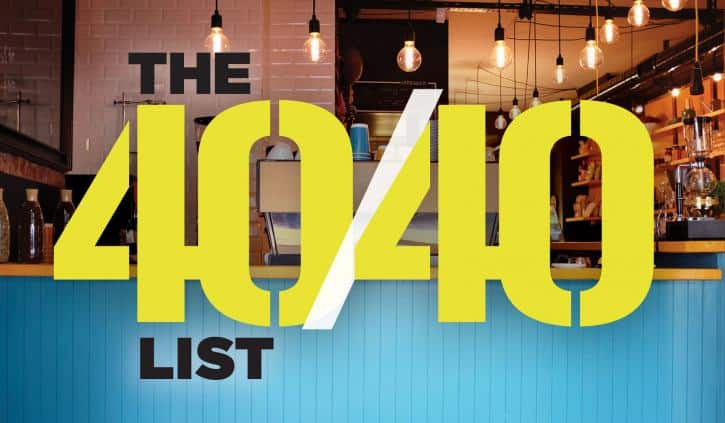
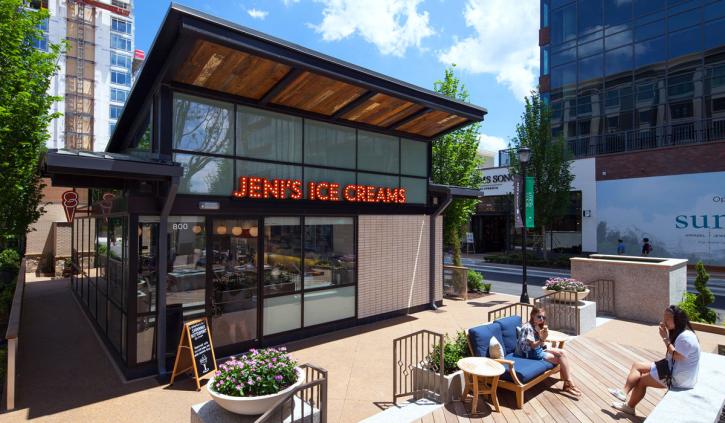
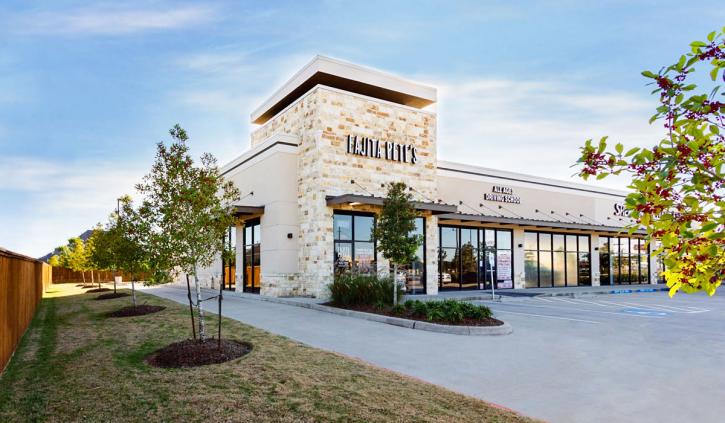
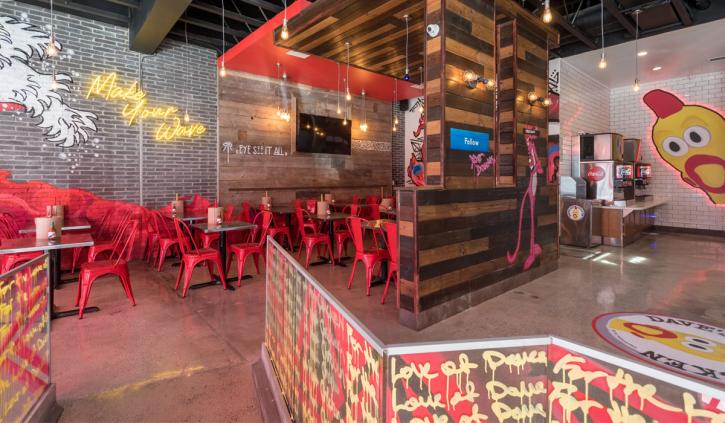
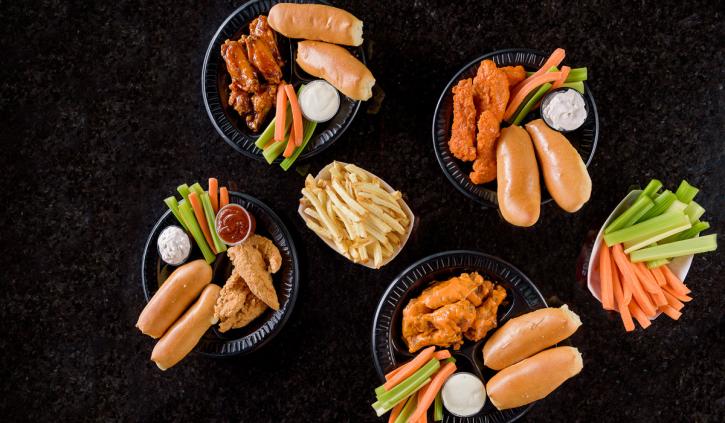
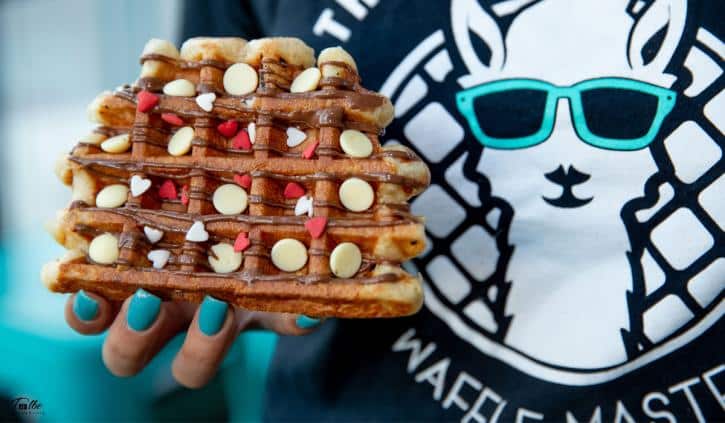
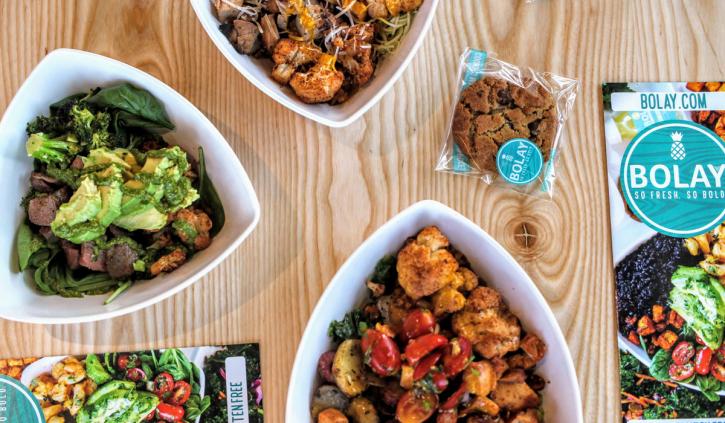

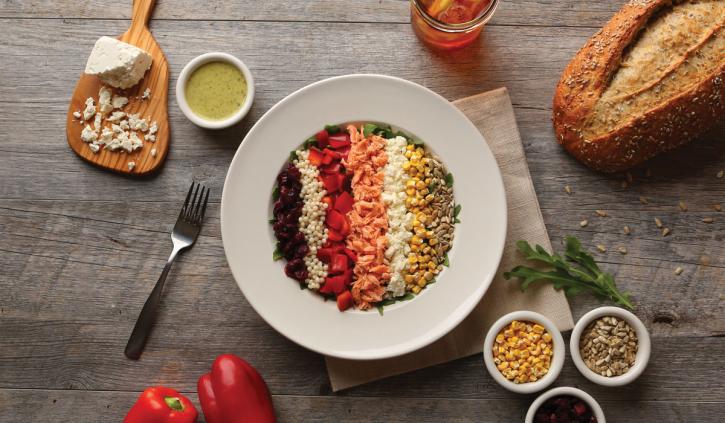
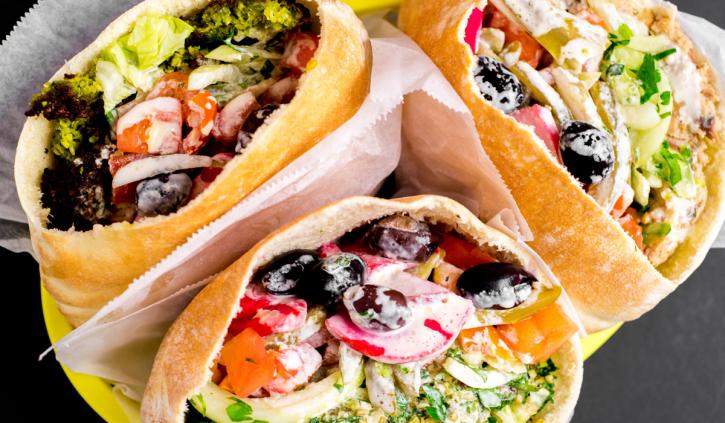
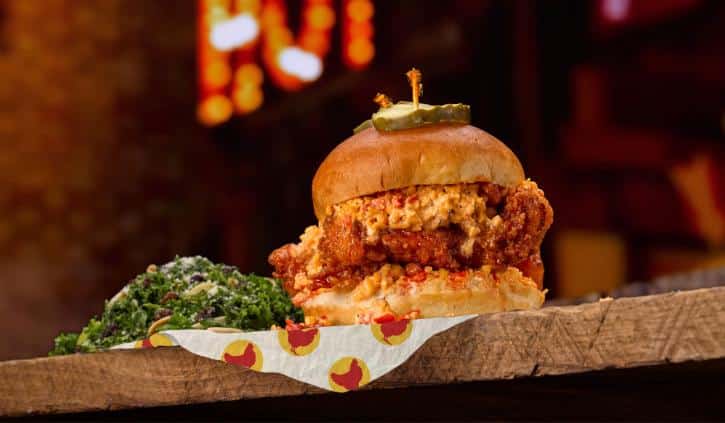
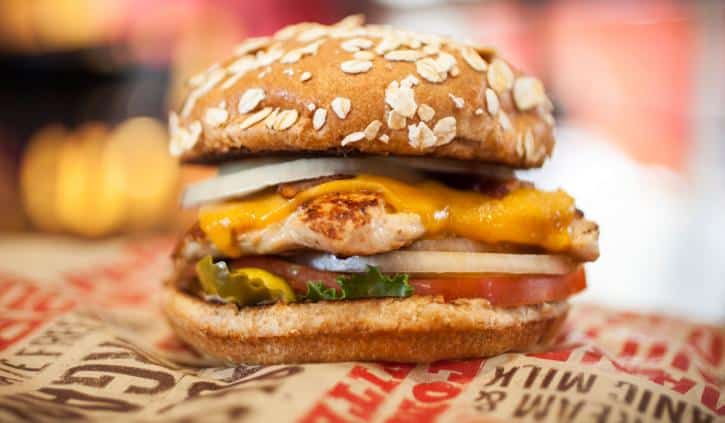
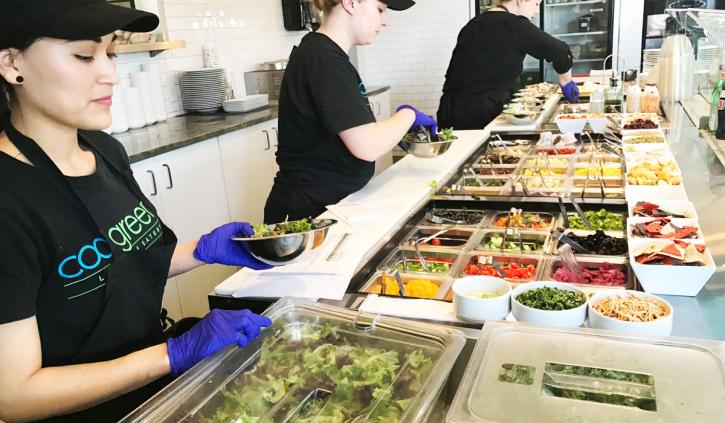

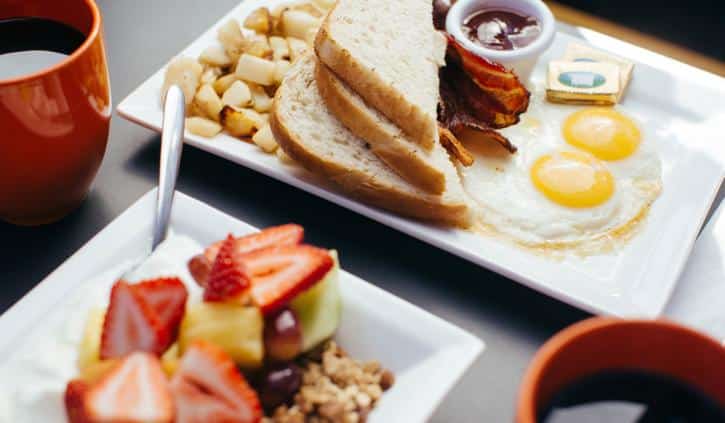

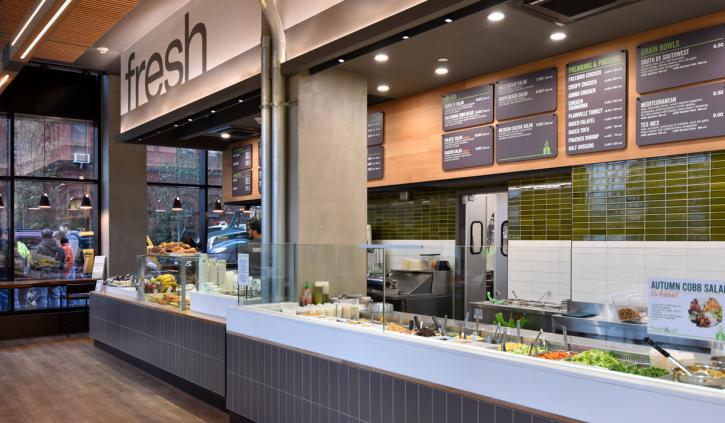
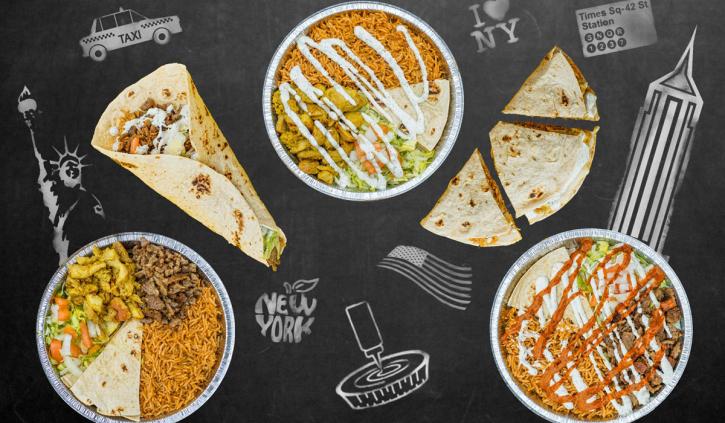

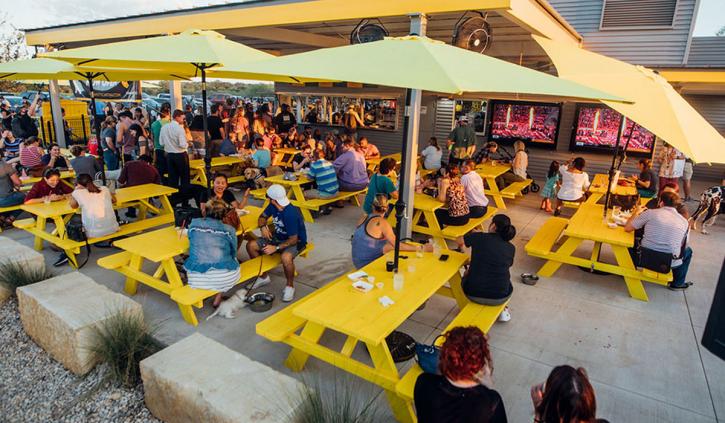

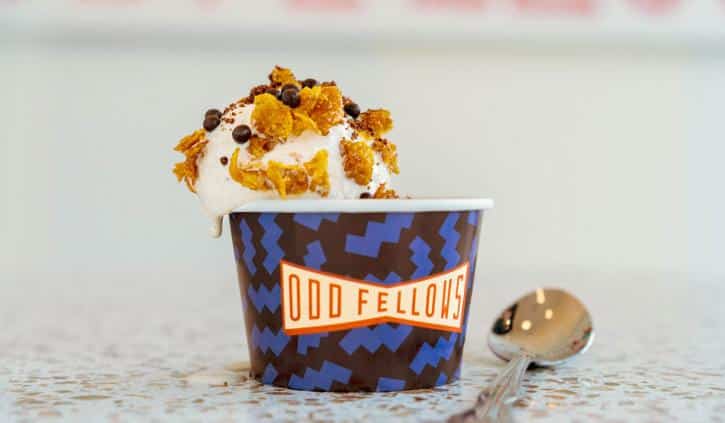
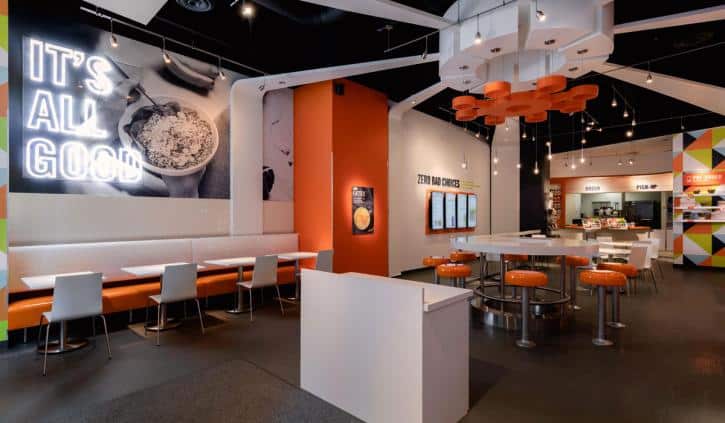
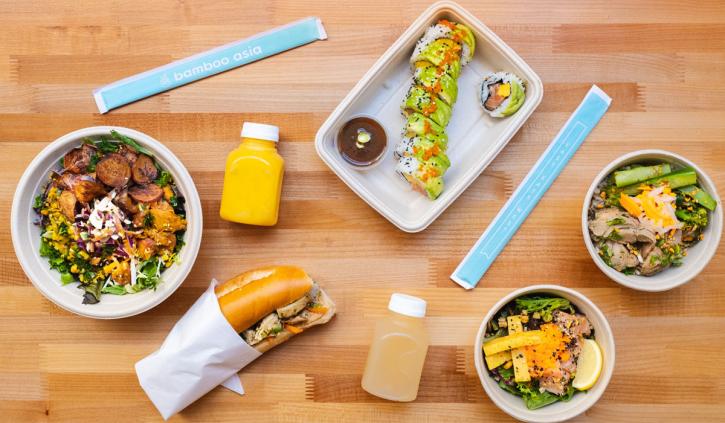
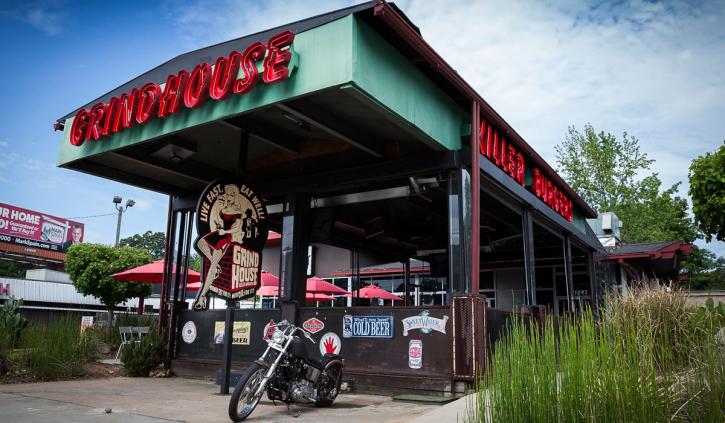
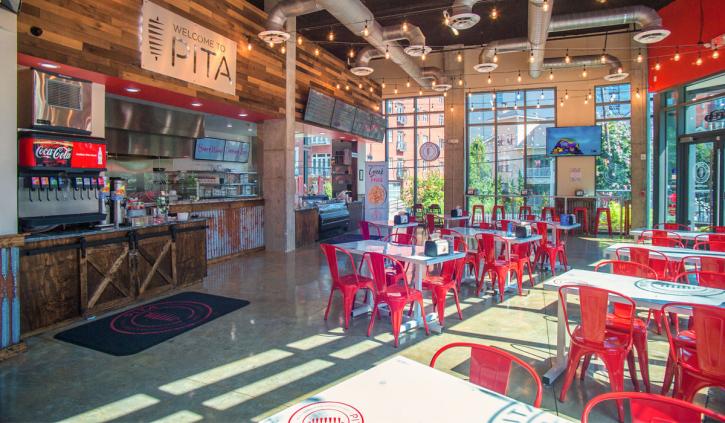
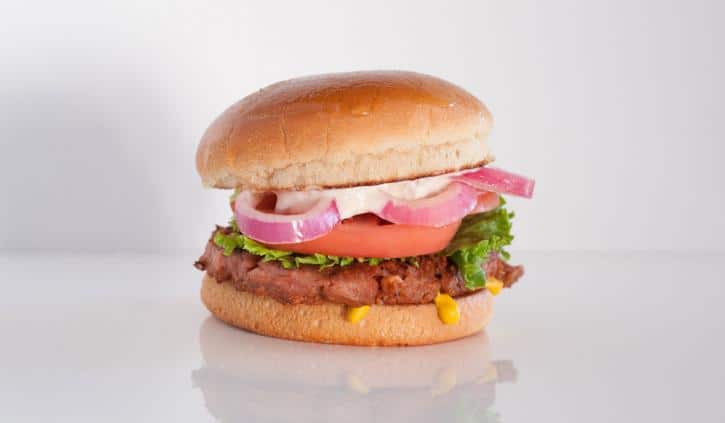
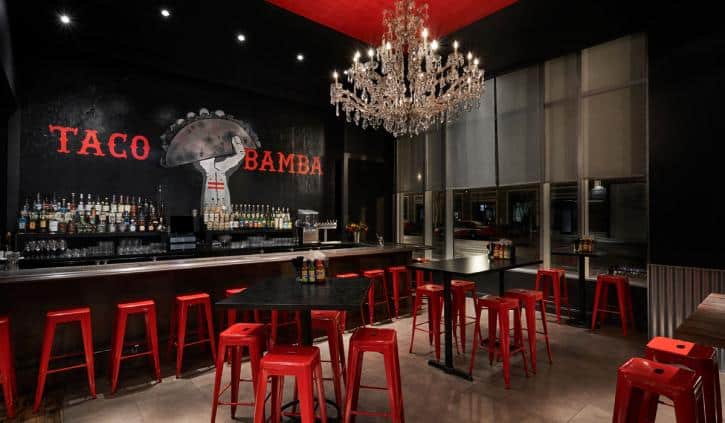
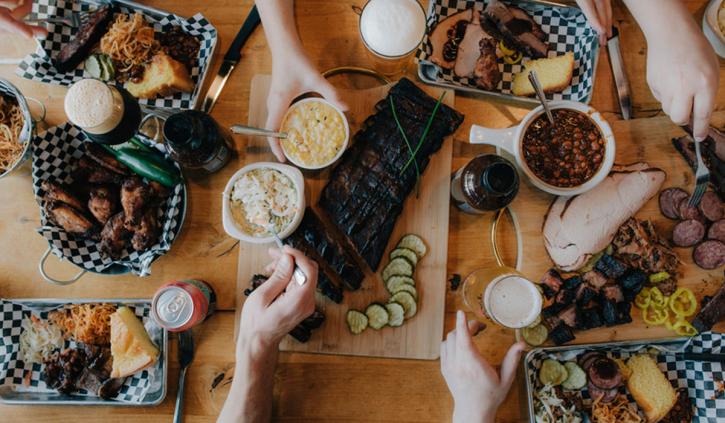
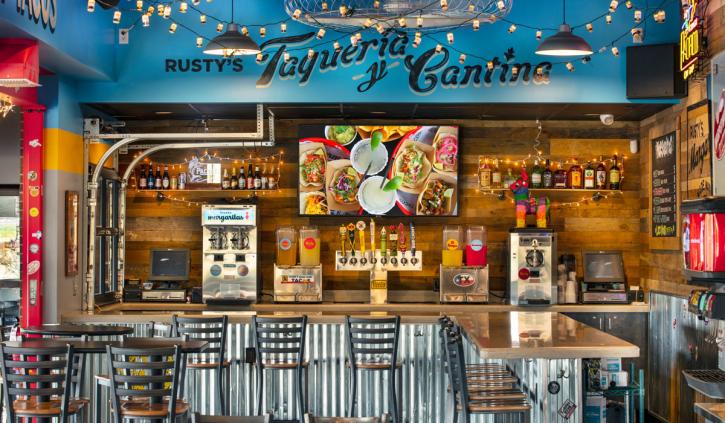

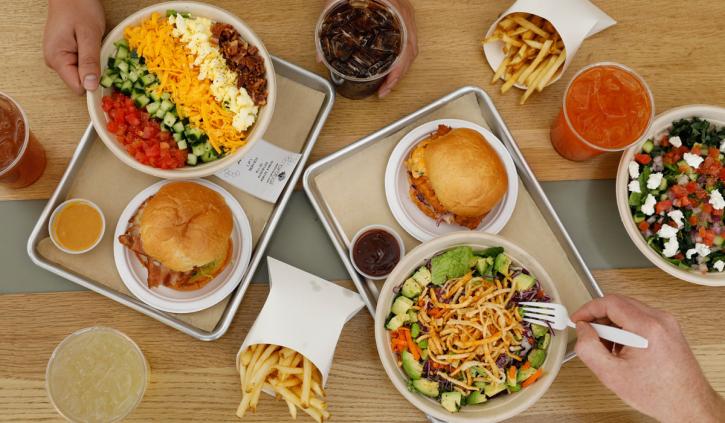
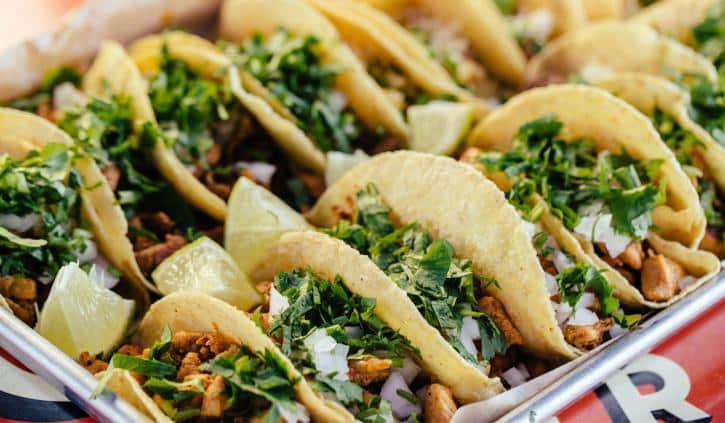
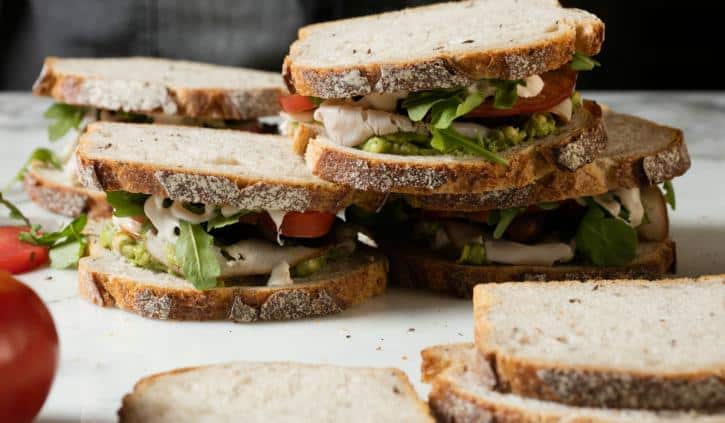
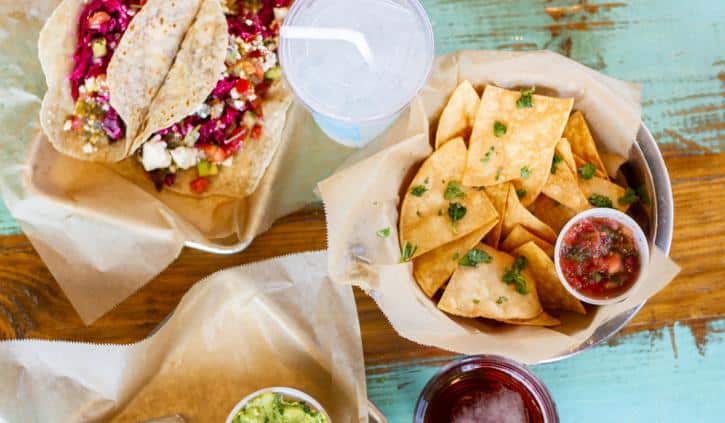
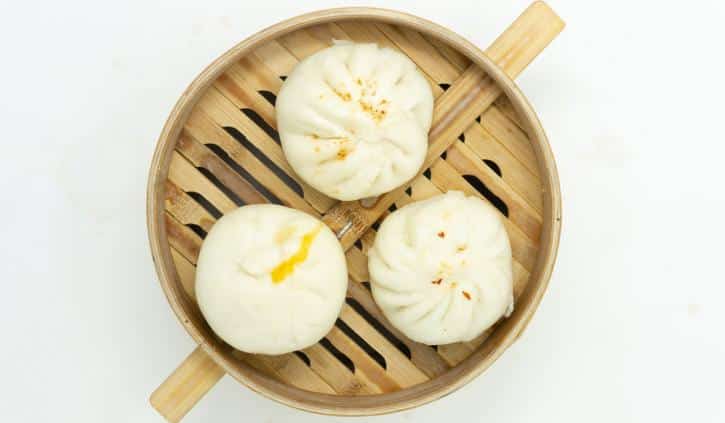
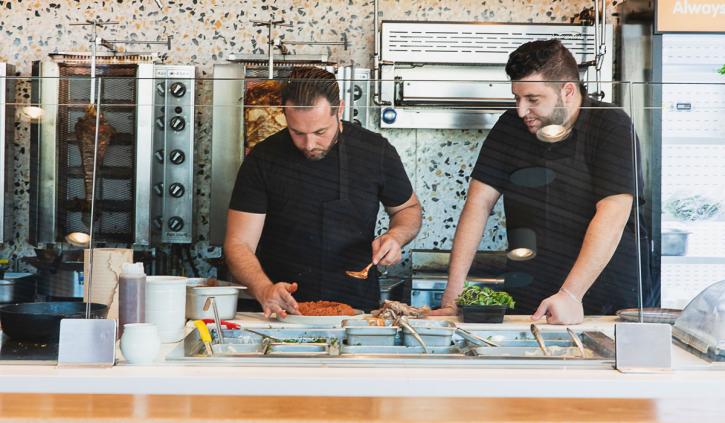
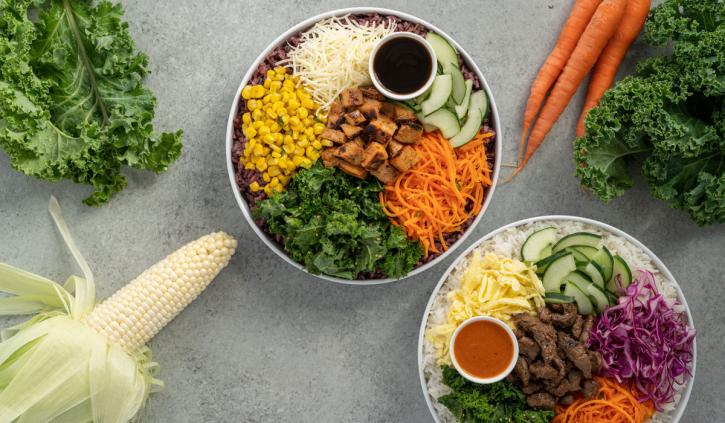

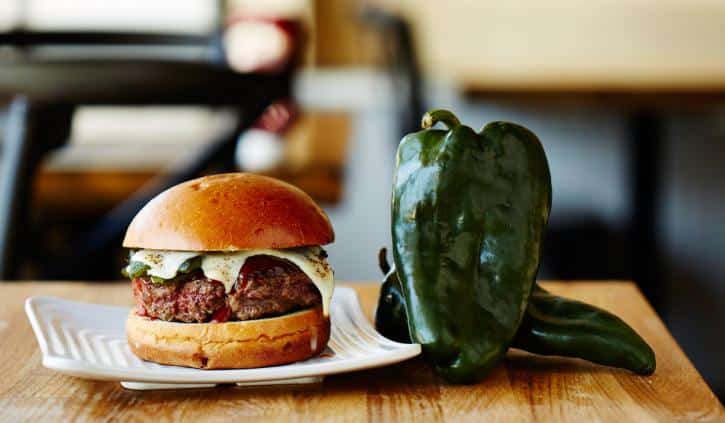

Cleared for take-off
When we first launched the 40/40 List in 2017, we searched high and low for a solid name that communicated our mission—identifying 40 fast-casual brands with fewer than 40 locations that we thought could become the next big thing—without slapping on the standard “40 under 40” moniker. A colleague finally landed on it; “40/40” not only communicated those two important numbers, but was also synergistic with “20/20,” i.e. perfect vision.
To put it more simply, through the 40/40 List, we’ll use our clear vision of the industry to identify the most exciting startup brands.
CHECK OUT PAST40/40 LISTS: 2019 / 2018 / 2017
How appropriate, then, that our fourth-annual list is in the year 2020, offering a completely new crop of 40 fast casuals that are emerging across the country. Of course, your vision is never really perfect in the restaurant industry (and we’ve had a few whiffs along the way). But we trust what we see in these exciting fast casuals, which are all elevating the category in their own unique ways.
Jeni’s Ice Creams
HQ: Columbus, Ohio
Units: 42
For Jeni Britton Bauer, making ice cream is an artistic practice.
“I like working with my hands, and I like telling stories through what I make. I was brought up by my grandmother, who was an art teacher. Art is an important part of my life and my perspective, and I think that ties really neatly into making ice cream,” says Bauer, founder and chief creative officer of gourmet ice cream chain Jeni’s Splendid Ice Creams.
When her love affair with ice cream began, Bauer was studying art at Ohio State University. After spending some time pioneering ice cream recipes at home, she dropped out of school and opened her first ice cream shop, Scream, in Columbus, Ohio’s North Market, selling a different flavor each day and honing her knowledge of the business.
Six years after starting Scream, and after attending the ice cream short course at Penn State University, Bauer opened the doors on the first Jeni’s in 2002, also in North Market. The differences between Scream and the new shop? Business savvy and staple flavors.
“With Scream, I made whatever flavor I was excited about that day, and I didn’t have that two-way conversation with customers,” Bauer says. “You have to listen to feedback and keep tweaking it as you move forward and build that consistency. With Jeni’s, we have those signature flavors and we really listen to the customers.”
These signature flavors are innovations on classics. There’s Darkest Chocolate, which offers a dense, bittersweet mouthful packed with Fair Trade cocoa powder and similar to the inside of a chocolate truffle; Salty Caramel, a mix of fire-toasted sugar, sea salt, and vanilla; and Brambleberry Crisp, a vanilla ice cream with oat streusel and a sweet-tart blackberry and blackcurrant jam layered in. Fresh flavors are mixed in throughout (like Pineapple Upside Down Cake with creamy buttermilk and the custard-y Cream Puff), and the brand has also added dairy-free options, like Texas Sheet Cake, to its roster in the last year.
There are now 42 Jeni’s units across the country, with more stores in the works. The upbeat, colorful shops are all corporate, and Bauer says franchising is not in the company’s future in order to control brand authenticity. Instead, the growth strategy revolves around online ordering hot spots.
“We go to our customers. We already have communities of fans in areas where they don’t have retail stores through orders and grocery. So we’re ready to pounce on that popularity and open in those neighborhoods,” she says.
With a major chain (plus a James Beard award and two cookbooks) now under her belt, Bauer—and her sweet treats—have come a long way from her first foray into the industry. What hasn’t changed is what Bauer also credits for Jeni’s success: creativity.
“We’re there to help customers take a trip every day,” she says. “When I was younger, everyone would say you have to go to Paris and try this flavor, or Florence, and I couldn’t afford to travel, so I’d just imagine what those tastes must be like. And so I think this beautiful idea of trying to live up to your imagination is at the heart of Jeni’s.”
Fajita Pete’s
HQ: Houston
Units: 16
The off-premises business may be booming today, but Pedro “Pete” Mora saw the potential in takeout, catering, and delivery way before most brands.
The founder of Houston-based Fajita Pete’s first opened a 60-table full-service restaurant in 2002. A year later, the restaurant launched a catering program serving hospitals, oil companies, and other businesses in the area. “Once we did, that changed the way I looked at the business as a whole, because it was such a good revenue stream,” Mora says. “It’s a lot easier to feed 80 people there than 80 people inside your restaurant.”
When the lease was up for that restaurant, Mora decided to scale back and open a fast casual dedicated particularly to catering. Fajita Pete’s opened in 2008 in a 1,200-square-foot space where Mora estimates 75 percent of the footprint was dedicated to the kitchen. He centered the business on fajitas because they traveled well.
“They’re versatile, they fit a lot of diets—if you’re not eating flour, you can make a salad with the lettuce and [ingredients]. And they’re easy to tell people what they are,” says Mora, who is Colombian but recognized that Mexican cuisine is more familiar to Americans.
While Mora thought he’d make a good living out of that one catering business and call it a day, takeout and an in-house delivery business quickly took off. Now Fajita Pete’s has 16 Texas locations, with seven more planned and franchise opportunities available.
And the off-premises model remains core to the brand’s ongoing success.
“My ultimate goal would be to get to the Papa John’s model, where it’s just a counter,” Mora says. “I really want to just continue to go into small square footage, because it allows us to be in nicer areas, and the operating advantages are just so much more, with less marketing you have to do, less rent you have to pay.”
Dave’s Hot Chicken
HQ: Los Angeles
Units: 4
It’s hard to tell which has more heat: Dave’s chicken or its growth potential.
Cofounded in 2017 by childhood friends Dave Kopushyan, Arman Oganesyan, Tom Rubenyan, and Gary Rubenyan, the Los Angeles–based brand attained cult status during its first run as a pop-up in an East Hollywood parking lot. The signature spicy tenders piled over seasoned crinkle fries drew crowds almost immediately—and it wasn’t long before a new veteran exec and star-studded investors were on their way, too.
“[Dave’s is] different among fast-casual concepts in its advanced flavor profile, quality of the chicken, and spice. When you eat this food, there’s no question you want to come back,” says Bill Phelps, Dave’s CEO and cofounder and former CEO of Wetzel’s Pretzels, a chain he grew to more than 350 units.
Phelps teamed up with Dave’s last October, along with some celebrity backing; actor Samuel L. Jackson, former California first lady Maria Shriver, producer John Davis, and TV anchor and former football player Michael Strahan are now counted among the brand’s investors. Phelps, Davis, and Shriver also helped fund Blaze Pizza, one of the fastest-growing U.S. restaurant chains, helmed by Phelps’ Wetzels Pretzels partner, Rick Wetzel.
Now, with these big names behind the wheel, Dave’s is poised for white-hot growth in the near future. The original founders still own 50 percent of the company and have the option to franchise, but the brand has been transformed from a parking lot pop-up into something larger and more powerful; Dave’s now has four units up and running, and Area Development Agreements have been signed for some 50 additional stores.
“We’re looking toward a national concept. We have different models in place for product quality, distribution, operations, and social media that are going to make it the leader in the category wherever we go,” Phelps says.
What drew such high-profile buzz to a relatively new brand? Phelps says that the quality of the product was a major attraction. The menu is simple, with chicken at seven levels of heat, sliders, spice-coated fries, macaroni and cheese, and kale slaw offered in huge portions.
Aside from the taste quality, though, Phelps says he was won over by the passion and savvy of the brand’s original cofounders.
“The social media efforts of this young group is as good as any I’ve seen in the business,” he says. “What we’ve got with Dave’s are executives who have done the job before partnering with young, aggressive entrepreneurs who have the fire and spirit to make something really successful and really unique.”
Epic Wings
HQ: San Diego
Units: 23
It seems in the food industry that the idea of freshness never expires. For Epic Wings, that idea is the guiding principle behind each location operating without refrigerators, compelling the restaurants and franchise operators to live up to the freshness pledge. Beyond that, the brand, family-owned for the 35 years it’s served the San Diego area, places critical importance on family values and conveys that to all franchisees. The brand is poised to grow beyond San Diego as well, with new locations planned for Orange County and Riverside County, California, and in Phoenix.
The Dolly Llama
HQ: Los Angeles
Units: 4
Inspired by a real llama that cofounder Samuel Baroux met on a farm in the South of France, this waffle-and-ice-cream-focused dessert concept was founded by Baroux, an acclaimed European restaurateur, and Eric Shomof, a real estate developer. The pair decided to make Dolly the llama the representation of their brand, bringing the friendly and fun nature of llamas to their adventurous dessert creations. Now The Dolly Llama is looking to quickly grow, having doubled the number of locations in 2019. Aside from brick-and-mortar units, the brand is looking to grow through nontraditional outlets such as kiosks and a mobile trailer.
Bolay
HQ: Palm Beach Gardens, FL
Units: 15
Amazon, Apple, Disney, Google. Four company names every American knows, and four companies that were started in garages by founders who believed in their core products.
It’s not so different of a story for Bolay CEO Chris Gannon—at least, the garage part of it. Having grown up in the restaurant industry—his father, Tim, cofounded Outback Steakhouse—Gannon realized no concept was satisfying his own preferred eating habits, so he hunkered down to develop a health-focused fast casual. He assembled a team of industry experts and recruited chefs to create quality food that fit more into the vision of the restaurant he would like to visit. The team gathered in his garage, where they experimented with recipes that later became the juices and bowl-based dishes on the menu.
With help from his father and that team of experts, Gannon opened the first Bolay in 2016.
It has since grown to 15 locations across Florida.
“Bolay was created with an incredible team and passionate people. Our team is what makes us who we are today. It is nothing about me,” Gannon says. “It is an incredible team that has brought us to where we’re at.”
Gannon says he realized he had a success on his hands when the first location was not just filled with satisfied customers, but also their friends.
“When someone comes to your restaurant, and they come back bringing someone else and saying, ‘Oh my god, you have to try this’—when you have word of mouth, raving fans—I believe that’s when we knew we had something,” he says.
Bolay’s culture is centered on feeling good, working hard, and having fun. The company’s ethos is, “To inspire our team and our guests to be the best versions of themselves.” Gannon says that if a leadership team can inspire versus manage a concept, they’ll see more creativity and quality output throughout the restaurant.
One tradition that Gannon says he loves is the emulation of sports teams in their business practices. When employees reach the title of “Chef-coat,” their team is encouraged to pour buckets of ice water on them.
Bolay is focused on opening one good restaurant at a time, Gannon says. The company has plans to open eight to 10 locations in 2020 and expand outside Florida in 2021. And in the future? Perhaps this garage-founded brand will be known by every American.
I Heart Mac and Cheese
HQ: Boca Raton, FL
Units: 14
I Heart Mac and Cheese takes childhood favorites mac and cheese and grilled cheese and opens them up to near-infinite ingredient combinations. There is a wide variety of vegetable and meat toppings to include, and the brand recently began partnering with Beyond Meat for alternative meat options. The franchise concept is in growth mode, with new locations set to open in Indiana, New York, Florida, Georgia, Texas, Colorado, and Illinois.
Wildflower
HQ: Scottsdale, AZ
Units: 16
With 23 years of experience under their belt, the team leading bakery-café
concept Wildflower has shown they’re here to stay in the fast-casual industry. Employees are referred to as “breadheads,” and they’re required to complete a five-week training program to effectively learn the company’s unique culture. While it may be an industry veteran, Wildflower is still friendly to innovation.
The company has introduced online and mobile ordering and is in the process of opening a manufacturing facility that will make its breads and desserts.
Mamoun’s Falafel
HQ: Hoboken, NJ
Units: 9
Authenticity is a focus at Mamoun’s, where music, food, and décor is used to transport customers. Mamoun’s has been in the industry since 1971, when Mamoun Chater opened the restaurant in New York’s Greenwich Village, becoming one of the oldest Middle Eastern restaurants in the nation. The brand has made plans to expand into the top 40 media outlets in the U.S. through franchising, and is leaning into a newly launched mobile application, an employee and franchisee training program, and new executive hires to help.
Joella’s Hot Chicken
HQ: Louisville, KY
Units: 15
Founded in 2015, Joella’s Hot Chicken may be young, but it has grown quickly, riding hot chicken’s massive popularity to 17 locations. While Joella’s is thriving by offering hot chicken plates and sandwiches along with Southern-inspired sides, what really sets it apart is its focus on wedding-related catering, which accounts for 10 percent of its total business.
Epic Burger
HQ: Chicago
Units: 8
Mindfulness is one of Epic Burger’s main pillars, and the brand prides itself on accomplishing that by stimulating its customers’ thoughts on how food is produced, packaged, and prepared. It boasts the use of simple, sustainable ingredients, free of hormones and additives. Epic Burger also places a focus on inclusivity for customers; the brand has ensured that its burgers and sandwiches are halal-certified and was the first to bring the Beyond Burger to Chicago. Now the brand is looking ahead toward expansion after a 2019 acquisition.
Coolgreens
HQ: Oklahoma City
Units: 10
Health-focused Coolgreens has grown to 10 locations throughout Tulsa and Oklahoma City after a decade in business. The brand prides itself on satisfying any health goal. It’s also innovating digitally through a new rewards app, which allows customers to order online, pay, and earn points for their purchases. Coolgreens is heavily focused on bringing its tagline, “Feed Your Life,” far beyond its home market, with plans to open 24 locations over the next three years, including some outside Oklahoma.
Cowboy Chicken
HQ: Dallas
Units: 24
Nearing its fifth decade in operation, Cowboy Chicken was started by Phil Sanders and his wife, Jeanette, after they were inspired to perfect the taste of chicken cooked over an open fire, the center of the brand’s identity. These days, the brand is looking to enhance its technology platforms, including a new website that allows online ordering and enables efficient delivery. Cowboy Chicken is also in the process of designing a new store prototype, “Cowboy Chicken 4.0,” which will be built in the second half of 2020.
Daily Jam
HQ: Scottsdale, AZ
Units: 2
Daily Jam is a breakfast and lunch concept ahead of the curve when it comes to flexibility: The brand offers guests the chance to order at the register, bar, online, or through third-party locations, with pick-up available at all sites for maximum ease. The chain serves dine-in guests on china plates in a sleek, upscale dining room, adding a fine-casual feel to its flexible format and indulgent menu (i.e. Red Velvet Waffles that the Food Network voted best waffles in Arizona).
Gusto!
HQ: Atlanta
Units: 6
Started in 2014 by a former NFL quarterback in search of healthy, quick sustenance, this Atlanta-based chain tackles serving nutritional, flavorful food with—you guessed it—gusto. First, customers choose a Gusto, or a signature flavor like Sweet Soy Sriracha or Chipotle Mango Avocado; next, the variety is used to season a grilled protein atop a bowl, salad, or wrap; then the customer finishes off the meal with a variety of fresh toppings. The brand recently unveiled its first drive-thru location, too, upping its convenience factor even further.
Fresh&co
HQ: New York City
Units: 19
They say if you can make it in New York, you can make it anywhere. Fresh&co is making it in Manhattan; since it opened in 2010, 18 additional units have sprung up across the city, and the chain has plans to expand across the Northeast, too. With a seasonal menu that passes the test for any allergy or dietary restriction, fresh&co is a convenient choice for all health-minded customers. The brand’s app makes things even more accessible; customers can pay in-app for any in-store or online orders.
The Halal Shack
HQ: Albany, NY
Units: 8
The Halal Shack treads the line between tradition and innovation, serving convenient fare inspired by both New York street food and traditional Afghan cuisine. In keeping with the demands of today’s health-focused foodies, the roster of Middle Eastern and Mediterranean tastes on the menu is ethically sourced, prepped in accordance with Islamic dietary restrictions, and fully customizable. And with most locations in untraditional sites like universities and healthcare systems, the Halal Shack has plenty of bandwidth for building in other alternative sites.
Sweetberry Bowls
HQ: Jersey City, NJ
Units: 20
Sweetberry Bowls started with açai bowls, but the brand doesn’t plan on fencing itself in with one specific item. While Sweetberry’s açai and pitaya bowls are its most popular items, specifically with younger customers, the chain also offers a carefully curated variety of salads, wraps, poke bowls, and seasonal soups and vegan ice creams, working to ensure that there is something for everyone. Its approach seems to be working; since opening in 2017, the brand has branched out to 20 units, with more on the way.
MUTTS Canine Cantina
HQ: Dallas
Units: 2
Offering quality classics like the MUTTS Original Chicken Sandwich, a host of local beers and signature cocktails like the Barkarita, a dog-friendly menu, and a place for pups and owners to enjoy their treats together, MUTTS Canine Cantina has a promising recipe for the future. As more Americans look for ways to include their barking best friends in their dining experiences, the newly opened chain is looking at enormous popularity for its unique pairing of dog park and fast-casual eatery, and has plans to open the doors on four more franchised units in 2020.
Boba Guys
HQ: San Francisco
Units: 17
Not only does Boba Guys hand-make various boba teas and other beverages, but it also sources ingredients from the brand’s own tea company, Tea People, establishing a start-to-finish process that allows for ultimate transparency. With a variety of build-your-own, specialty, and always-fresh seasonal drinks on the menu, along with house-made tapioca boba balls and jellies that add the perfect flavor and texture to the teas, Boba Guys has nailed down a unique, sustainable model within the beverage business.
Oddfellows Ice Cream Co.
HQ: New York City
Units: 6
Oddfellows Ice Cream Co. was cofounded by Mohan Kumar, Holiday Kumar, and Sam Mason when Holiday Kumar was pregnant with twins, had a craving for savory ice cream, tasted Mason’s handmade pretzel ice cream, and fell in love. The trio started creating treats in a Brooklyn kitchen and, in 2013, set up shop, beginning the journey to the six units they have today. The chain offers fresh, small-batch ice creams, updating the classic frozen dessert format with locally sourced ingredients and a range of adventurous, tasty flavors.
Protein Bar & Kitchen
HQ: Chicago
Units: 19
Started in a small storefront in Chicago in 2009, Protein Bar has spent the last decade opening the doors on new units, moving into new markets (Washington, D.C., and Colorado),
and innovating on its original shake offerings to bulk up its menu and appeal to a wide variety of customers in pursuit of protein. The chain offers hearty options for breakfast, lunch, and dinner, spicing things up with a seasonal menu and a roster of plant-based and meat proteins. This year brings the first iteration of its franchising program as the brand preps for widespread growth.
Bamboo Asia
HQ: San Francisco
Units: 4
Bamboo Asia serves a bevy of Japanese, Indian, and Vietnamese options for the convenience-seeking customer, reformatting various Asian cuisines for a quick, customizable experience. Guests can choose among bowls, salads, curries, roti wraps, and more, selecting signature menu options or building their own. The variety offered sets the brand apart from Asian competitors; add in fresh ingredients and recipes that can accommodate any diet or allergy, and you’ve got a brand worth keeping an eye on.
Grindhouse Killer Burgers
HQ: Atlanta
Units: 7
Grindhouse Killer Burgers refuses to let burgers be boring. The concept offers four patties—beef, turkey, veggie, and Impossible—topped with countless cheeses, sauces, and veggies. Burgers can also be topped with a range of add-ons, from Vidalia onion rings to tortilla strips, and each patty is tucked into a perfectly toasted potato bun (or a gluten-free, vegan bun). These burgers aren’t bourgeois, either. A single patty starts at $4.99, hot dogs run $3.50, a cup of Championship Brisket Chili costs $2.99, and other affordable eats are also on the menu
Pita Mediterranean
HQ: Peachtree City, GA
Units: 33
Mediterranean tastes are a hot commodity in the fast-casual space right now, and Pita Mediterranean is capitalizing on this in the Southeast and elsewhere around the U.S. with its 33 units and counting. The Georgia-based chain serves fresh, portable combinations like customizable street pitas and rice bowls; pita platters with gyro meat, shrimp kebabs, and other proteins; and the indulgent Loaded Fries, with crumbled feta, tahini, and gyro meat.
Earth Burger
HQ: San Antonio
Units: 5
Earth Burger doesn’t play around when it comes
to clean eating. The brand opened its doors in 2014, just ahead of the plant-based craze,
offering health-forward alternatives for nearly any classic quick-serve staple—think quarter-pounder veggie burgers, BBQ Pulled Jackfruit, and a crispy breaded fishless sandwich. While Earth Burger isn’t franchising at the moment, the brand is sure to face added corporate growth in coming years as dairy-
and meat-free diets continue to grow in popularity.
Taco Bamba
HQ: Washington, D.C.
Units: 5
Pairing chef-driven fare with the ease and value of fast casual, Taco Bamba blends Cuban, Mexican, and Peruvian dishes to create all-day breakfast, lunch, dinner, and happy hour menus that offer everything from breakfast tacos to Chipotle Dusted Chicharrones (crispy pork skins) to a Wood Fired Pineapple Margarita. Each
location has a Taco Nuestros—or “our tacos”—section, increasing the unique tastes offered at each unit and adding a specific, detail-oriented touch that elevates the brand beyond the typical fast-casual feel.
Burnt End BBQ
HQ: Overland Park, KS
Units: 3
Celebrating 10 years of slinging Kansas City–style burnt ends, ribs, and wings this year, Burnt End BBQ is just now looking to grow, and recently opened its third location in downtown Kansas City (along with its original Overland Park location, Burnt End also has a shop in Denver). The brand offers barbecue staples like platters and sandwiches, but also differentiates itself with its popular roster of bowls. Located in a popular city-center property, Burnt End’s third restaurant features a full bar and additional menu entrées.
Rusty Taco
HQ: Atlanta
Units: 33
No other brand on the 40/40 List has a parent company quite like Rusty Taco. The fast casual sits under the Inspire Brands portfolio, counting Arby’s, Buffalo Wild Wings, Sonic Drive-In, and Jimmy John’s as sister concepts. Founded in 2010 by the late Rusty Fenton, Rusty Taco re-creates the traditional taco stand, serving a range of street tacos, breakfast tacos, and sides, along with a bar that includes beer and frozen and rocks margaritas. With the Inspire engine beneath it, Rusty Taco is looking to franchise across the U.S.
Main Squeeze Juice Co.
HQ: New Orleans
Units: 15
Amid the rise in juice, smoothie, and açai bowl concepts, Main Squeeze is distinguishing itself through its nutritionist-designed, superfood-centric menu that is gluten-free and vegan, and its one-, two-, and three-day juice cleanse programs, shots, and açai bowls. The brand also launched its own proprietary POS system for franchisees that handles everything from inventory management to juice and smoothie production, SMS blasting, employee onboarding, cost reporting, time management, and a customer rewards program. The company hopes to open an additional 25 locations this year.
Birdcall
HQ: Denver
Units: 3
Birdcall isn’t just a quality chicken experience; it’s a tech-forward one, too. The brand, founded in 2016 by Jean-Philippe Failyau and Peter Newlin of Gastamo Group (owners of Park Burger and Homegrown Tap & Dough, among other Denver-based concepts) serves 100 percent all-natural chicken sandwiches and salads, sourcing locally for its chicken and bread. But it’s the ordering experience that really stands out; Birdcall restaurants feature self-service kiosks, and guests pick up their orders in a designated cubby (all of it powered by a custom-built technology platform). Birdcall just launched a franchise program and plans to initiate growth in Colorado and then across the Southwest.
Taqueria La Ventana
HQ: Dallas
Units: 4
Opened in 2012, the first Taqueria La Ventana was spun off full-service Meso Maya as a walk-up window on the back side of that restaurant in Uptown Dallas. Designed to replicate an authentic Mexico City taqueria, the concept serves customizable tacos in handmade corn tortillas, along with gourmet burritos, salads, tacos, bowls, quesadillas, elote (street corn), and churros, not to mention beverages like beer and margaritas. Taqueria La Ventana has since grown to four units in Dallas, with plans to expand further in the Dallas-Fort Worth area.
Cafe d’Avignon
HQ: Long Island City, NY
Units: 6
When Uliks Fehmiu, Bane Stamenkovic, and Tole Zurovac immigrated to the U.S. from their home in the former Yugoslavia, they missed the bakery-cafés they’d grown up with. They first opened bakery Pain D’Avignon in New York to sell breads and pastries to restaurants and hotels, and later opened the European-style Cafe d’Avignon, which serves sandwiches, quiches, and salads, along with sweets and pastries like the renowned baklava croissant. The concept is now franchising and opened its first franchise in Orlando, with plans for further growth there and in the New York metro area.
Poppo’s Taqueria
HQ: Anna Maria Island, FL
Units: 8
Poppo’s opened in 2013 as a way to offer Floridians the Mission-style street food that its founding family had grown up on in San Francisco. Several members of the Coleman family opened the restaurant as an outlet for scratch-made tacos, quesadillas, burritos, and bowls using whole ingredients, and named the concept after the family’s grandfather, whom they called Poppo. While they had no intentions of growing, the cult-like status of the original restaurant has led them to opening seven additional units in Florida, with plans for calculated growth.
Bao’d Up
HQ: Austin, TX
Units: 3
Chinese fast casual has largely remained an untapped category on the national stage, but Bao’d Up is planning to be among the brands that change that fact. The emerging Austin concept serves bao (steamed buns filled with a range of sweet or savory ingredients), noodles, and bubble tea, all of which promote the healthier nature of Asian cuisine. Bao’d Up also boasts a streamlined operation perfect for rapid expansion; customers order on kiosks and pick up their orders in designated lockers.
Simsim Outstanding Shawarma
HQ: San Diego
Units: 2
Two-unit Simsim may be small, but it is mighty. The Middle Eastern brand—named for the Arabic word for sesame—was cofounded by Nawar Miri, who previously served as corporate director at the growing fast casual (and 40/40 alum) Urban Plates. Miri has aggressive growth plans for Simsim, which opened its first location less than two years ago and serves traditionally prepared shawarma in signature wraps, bowls, or plates, with much of the menu (including its sauces and hummus) being made from scratch.
BIBIBOP Asian Grill
HQ: Columbus, OH
Units: 37
Founded by Charleys Philly Steaks founder Charley Shin, BIBIBOP Asian Grill began with his vision to bring the time-honored flavors and healthy ingredients of South Korea to Columbus, Ohio. Inspired by the traditional Korean dish bibimbap, BIBIBOP offers quick, balanced, and healthy Asian cuisine that can be customized by guests. Since opening its doors in 2013, BIBIBOP has expanded to 37 locations from Los Angeles to Washington, D.C., and throughout the Midwest, with plans for 15 more in 2020.
Village Burger Bar
HQ: Dallas
Units: 5
Village Burger Bar may be a five-unit concept, but guests would be forgiven to think each location was an independent shop. The brand, which serves high-quality burgers, salads, and paninis, goes out of its way to ensure no two restaurants are exactly the same, creating a unique experience through both store design and a full-service bar program that’s tailored to each local neighborhood. Village Burger Bar is also committed to its youngest patrons; it partners with the Texas Scottish Rite Hospital for Children for its philanthropic efforts, and has recently invested in enhancing the nutritional profile of its kids menu.
Liberty Burger
HQ: Dallas
Units: 6
The restaurant industry is in the DNA of Liberty Burger partners Mariel and Marco Street, whose father, Gene Street, launched The Black-Eyed Pea chain in the 1970s. Having launched Liberty Burger in 2011, the brother-sister duo have grown it to six units (including two franchises) focused on quality ingredients and a unique neighborhood vibe.
Happy + Hale
HQ: Raleigh, NC
Units: 4
What started as a mobile juice-and-salad concept in downtown Raleigh in 2013 has turned into a thriving lifestyle brand with its sights set on Southeast domination. Happy + Hale cofounders Tyler Helikson and Matt Whitley graduated from golf-cart deliveries to a brick-and-mortar shop in 2014 and have since grown it to four locations: two in Raleigh, one in Durham, and one in Greenville, South Carolina.
With new investors getting behind it, Happy + Hale is opening another shop in Durham this year and two in Charlotte, and moving forward, Helikson says, the brand aims to become a large player across the Southeast.
